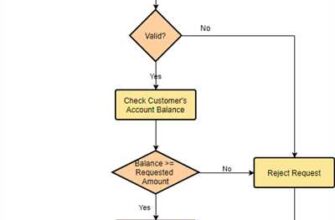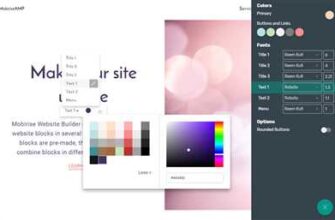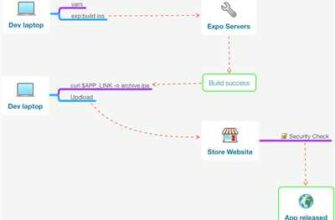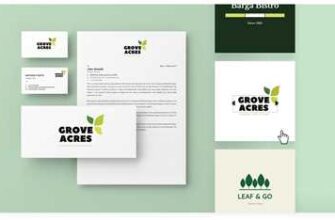
If you’re a passionate individual who wants to share your ideas, connect with others, or even make a profit online, then starting a blog might just be the perfect fit for you. Blogging offers a unique avenue for self-expression, a platform where you can pour your time, travail, and secrets into writing about what you love.
But where do you start? The online world can be overwhelming, with countless blogs and bloggers vying for attention. Don’t worry, we’ve got you covered. In this comprehensive guide, we will walk you through the essential do’s and don’ts of starting a successful blog. From choosing the right niche to improving your writing skills, we will cover it all.
First and foremost, finding the right niche is crucial. What are you passionate about? What topic do you want to cover? Bloggers who focus on a specific niche tend to do better in terms of connecting with their audience and driving sales. So take some time to assess your interests and choose a niche that you genuinely enjoy and can inspire others with.
Once you’ve chosen your niche, it’s time to do some research. Look for great examples of blogs in your niche and analyze what makes them successful. Read their posts, find out what ideas they’re presenting, and see how they connect with their audience. Don’t forget to read guest posts and reviews as well; testimonials can provide valuable insights into what works and what doesn’t.
Now that you have a better understanding of your niche and what it takes to succeed, it’s time to start writing. Pour your creativity into your posts and offer valuable content to your readers. Keep in mind that well-researched and thoughtfully written articles tend to perform better than hastily put together ones.
But writing isn’t the only thing you need to focus on. Connecting with your audience is equally essential. Engage with your readers through comments, social media, and email newsletters. Actively participate in online communities related to your niche, and don’t be afraid to reach out to other bloggers for collaborations or guest posting opportunities.
As you publish more posts and build your brand, you may also want to consider offering products or services that align with your blog’s niche. Digital products such as e-books and online courses are great options to monetize your blog and offer something valuable to your audience. Assess the profitability of your chosen market and see what products or services can be offered to further enhance your blog’s revenue.
Remember, blogging is a journey, and it takes time to build a successful blog. It’s important to stay consistent, keep on learning, and constantly improve your skills. Don’t be discouraged by initial setbacks; instead, use them as opportunities to learn and grow. With passion, dedication, and the right strategies, your blog can become a premier online destination for others who share your interests.
- Comment créer un blog – guide du débutant
- 1 Find Your Niche
- Choose a topic you’re passionate about
- Do some market research
- Assess your niche’s profitability
- What are the DON’Ts of Blogging
- Guest Blogging
- Blog Post Ideas
- Keep on reading
- 72 real-life digital product examples and ideas to inspire you
- Improve your sales page: Get better testimonials and reviews
- The secret to writing promotional copy for online courses that sells
- Video:
- If I Were Starting a Blog in 2024, This Is What I’d Do [0-$100k Guide]
Comment créer un blog – guide du débutant
Si vous êtes passionné par le marketing digital et que vous souhaitez créer un blog, vous êtes au bon endroit. Un blog peut être un excellent outil pour promouvoir votre marque, connecter avec votre audience cible et obtenir des idées pour améliorer vos produits et services.
Pour commencer, vous devez choisir un sujet ou une niche dans laquelle vous êtes compétent et passionné. Cela vous permettra d’écrire des articles intéressants et d’inspirer les autres. Vous pouvez également rechercher d’autres blogs dans votre domaine pour trouver des idées et des exemples de commentaires et de témoignages.
Une fois que vous avez choisi votre sujet, vous devez créer votre premier article de blog. Assurez-vous de bien le rédiger et de le relire pour éviter les fautes d’orthographe et de grammaire. Vous pouvez également proposer des articles invités sur d’autres blogs pour augmenter votre visibilité et votre notoriété.
Lorsque vous avez lancé votre blog, il est important de garder à l’esprit quelques “do’s and don’ts” pour garantir son succès. Ne vous attendez pas à ce que votre blog devienne rentable du jour au lendemain, cela prend du temps et des efforts. Vous devrez également investir du temps dans la recherche de mots-clés, l’optimisation de votre page et la promotion de votre blog.
En outre, n’oubliez pas de rester cohérent et de maintenir une fréquence de publication régulière. Les blogueurs les plus réussis publient régulièrement des articles de qualité pour garder leur public intéressé et engagé.
Enfin, ne sous-estimez pas le pouvoir des témoignages et des avis réels. Si vous avez des produits ou des cours à vendre, obtenez des commentaires de clients satisfaits et présentez-les sur votre blog pour convaincre les visiteurs que votre produit est de qualité et qu’il vaut la peine d’être acheté.
En suivant ce guide du débutant, vous pourrez créer un blog réussi qui vous apportera à la fois une visibilité en ligne et une rentabilité.
1 Find Your Niche
One of the most important steps in starting a blog is finding your niche. Your niche is the specific topic or theme that your blog will revolve around. Finding the right niche is crucial because it will determine the audience you attract and the success of your blog.
When choosing a niche, it’s important to find something that inspires you and that you’re passionate about. Blogging is a long-term commitment, so you want to make sure you choose a niche that you’ll enjoy writing about for years to come.
To find your niche, start by brainstorming ideas. Think about your hobbies, interests, and areas of expertise. What topics could you confidently write about and provide valuable insights? You can also research popular niches online and see what other bloggers are writing about.
Once you have a few ideas, it’s time to assess the market. Is there a need for your niche? Are there other blogs already covering the same topic? What can you do differently or better? Conduct market research to understand your niche’s profitability and potential audience.
Remember, your niche should also align with your goals. If you want to monetize your blog, consider niches that have potential for product sales or affiliate marketing. If you want to establish yourself as an expert in a specific industry, choose a niche that allows you to demonstrate your knowledge and expertise.
When narrowing down your ideas, consider the demand for your niche. Are there online communities, forums, or social media groups dedicated to the topic? This can be a good indicator that people are actively seeking information and engagement in that area.
To get a better idea of what your niche could encompass, make a list of potential blog post topics. This will help you determine if there’s enough content to sustain your blog in the long run. You can also look for examples of successful blogs in your niche and see what they cover.
Once you’ve chosen your niche, it’s time to get started. Create a blog with a unique and memorable domain name that reflects your niche. Develop a content strategy that covers a wide range of topics within your niche to keep your audience engaged.
Writing great content is key to a successful blog, so make sure you dedicate time to developing your writing skills. Offer value to your readers by providing insightful articles, tutorials, reviews, or even guest posts from experts in your niche.
@@Remember, being successful in the blogging world takes time and dedication. Keep in mind some dos and don’ts to help you along the way:
| Do: | Don’t: |
| Research your niche thoroughly | Copy other bloggers’ content |
| Write compelling and valuable content | Promote low-quality or irrelevant products |
| Engage with your readers and respond to comments | Overlook the importance of SEO |
| Testimonials and reviews | Focus solely on self-promotion |
| Continuously improve and adapt your content | Forget to analyze your blog’s performance |
By following these guidelines and staying true to your passion, you’ll be on your way to launching a successful blog in your chosen niche.
Choose a topic you’re passionate about
When starting a blog, one of the most important decisions you’ll make is choosing a topic that you’re truly passionate about. Your passion for the subject will shine through in your writing and will keep you motivated to consistently produce high-quality content.
To choose the right topic, start by brainstorming ideas and doing some initial research. Consider your interests, hobbies, and areas of expertise. What are you knowledgeable about and excited to share with others? This can be anything from travel and food to fashion and technology.
Once you have a list of potential topics, assess the market demand and competition. Look for a niche within your chosen area that is not overly saturated with other bloggers. This will give you a better chance to stand out and establish yourself as an authority.
It’s also important to consider the profitability of your chosen topic. While not everyone starts a blog with the aim of making money, it’s always a nice bonus if your blog can generate some income. Research if there are any products or courses related to your topic that you can promote and earn commissions from.
If you’re unsure about whether your chosen topic will resonate with your target audience, try writing a few sample blog posts or guest posts on other blogs. Pay attention to the feedback and engagement you receive. If people are responding positively and showing interest in your content, it’s a good sign that you’re on the right track.
Remember, blogging is a long-term commitment, so it’s important to choose a topic that you won’t get bored of easily. A topic you’re passionate about will make the process enjoyable and keep you motivated even when the going gets tough.
Don’t be afraid to evolve and adapt your chosen topic over time. As you gain more experience and your blog grows, you may discover new subtopics and angles that you want to cover. The key is to always stay true to your passion and provide valuable content to your readers.
So take some time to reflect on what truly excites you, and start your blogging journey with a topic that you’re passionate about. The more you enjoy what you write about, the more likely you are to succeed in the competitive world of blogging.
Do some market research
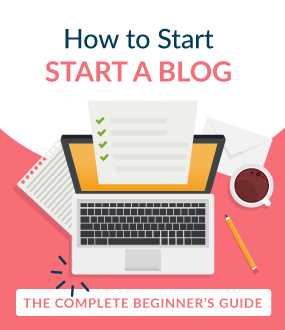
Before you start a blog, it’s important to do some market research to understand the niche you’re planning to delve into. Assessing the profitability and demand of your chosen topic will help you determine whether there’s a market for it.
Start by reading blogs and posts related to your desired niche. Take note of what topics are covered, what products are offered, and what the bloggers are writing about. This will give you a better understanding of the competition and what you can do to stand out.
Look for examples of successful blogs in your niche. Take note of how they connect with their audience and the promotional strategies they use. You can also find inspiration from real-life success stories and testimonials from bloggers who have achieved great results in your niche.
In addition to researching other blogs, it’s important to assess the profitability of your niche. Look for products or services that are being sold in your niche and determine if there’s a market demand for them. If there are a lot of products being sold and positive reviews and testimonials about them, it’s a good sign that there’s a market for your blog topic.
Keep in mind that market research is an ongoing process. As you continue to develop and grow your blog, you’ll need to keep up with the latest trends and changes in your niche. This will help you to stay relevant and constantly improve your blog to better serve your audience.
Remember, the secret to a successful blog is to find a niche that you’re passionate about. If you’re genuinely interested in the topic, it will show in your writing and your readers will be able to connect with you on a deeper level. So, take the time to choose a niche that you truly care about and that you’re knowledgeable in.
Doing market research is a crucial step in starting a blog. It will guide you in choosing the right niche and help you better understand your audience and their needs. So, don’t skip this important step and take the time to do thorough research before launching your blog.
Assess your niche’s profitability
Before you start a blog, it’s important to assess the profitability of your chosen niche. You may have a passion for a specific topic, but if it doesn’t have a market that’s willing to pay for products or services in that niche, it might not be the best choice for your blog.
One way to assess profitability is by researching other bloggers in your niche. Look at their website and blog pages to see how they monetize their content. Are they selling products, offering courses, or promoting affiliate products? If they have a lot of advertising or sponsored posts, it’s a good sign that they are making money in that niche.
Another way to assess profitability is to search for product reviews or testimonials in your chosen niche. If you find a lot of positive reviews and testimonials, it means there is a demand for products or services in that niche.
Additionally, you can also connect with other bloggers or experts in your niche and ask for their insights. They may have some real-life examples and experiences to share that can give you a better understanding of the profitability potential.
It’s also important to keep in mind that profitability can vary depending on the digital market trends. What may be popular and profitable today may not be the case tomorrow. So, it’s essential to stay updated on the latest trends and adapt your blog content accordingly.
Lastly, don’t forget to assess your own skills and passion for the niche. The key to a successful blog is to be passionate about what you’re writing. If you’re not interested or knowledgeable about the topic, it will be difficult to motivate yourself and keep producing quality content.
In conclusion, assessing your niche’s profitability before you start a blog is crucial. By doing research, connecting with other bloggers, and considering your own skills and passion, you can determine if your chosen niche has the potential to be profitable. So, take the time to do your due diligence and make an informed decision before you dive into launching your blog.
What are the DON’Ts of Blogging
When starting a blog, it’s important to know what not to do in order to avoid common pitfalls and mistakes. Here are some DON’Ts of blogging:
1. Don’t copy content: Plagiarism is a serious offense. Always create original and unique content for your blog. Copying content from other blogs or websites not only hurts your reputation, but it can also lead to legal consequences.
2. Don’t neglect reading: As a blogger, it’s essential to keep reading and staying well-informed. Reading other blogs, books, and industry-related articles can broaden your knowledge and provide you with new ideas and inspirations.
3. Don’t write about everything: Choose a niche topic that you’re passionate about and have expertise in. Writing about too many random topics can confuse your readers and dilute your blog’s focus. Stick to a specific area and become an authority in that niche.
4. Don’t ignore research: Before writing a blog post, conduct thorough research. This will help you gather information and ensure that you provide accurate and helpful content to your readers. Research can also help you find new ideas and examples to enhance your blog’s quality.
5. Don’t ignore SEO: Search Engine Optimization (SEO) is crucial for driving organic traffic to your blog. Learn the basics of SEO, such as using relevant keywords, optimizing meta tags, and building backlinks. This will help improve your blog’s visibility and reach a wider audience.
6. Don’t neglect connecting with other bloggers: Building relationships with other bloggers in your niche is essential for your blog’s growth. Comment on their posts, participate in guest blogging opportunities, and collaborate with them on projects. This can help you gain exposure and attract new readers to your blog.
7. Don’t open too many promotional pages: While it’s important to monetize your blog and promote relevant products or services, avoid cluttering your blog with excessive promotional content. Balance your promotional efforts with valuable and informative posts to keep your readers engaged and interested.
8. Don’t forget about the audience: Always assess your audience’s needs and preferences. Write content that resonates with them and provides value. Use their feedback, comments, and testimonials to improve your blog and better cater to their interests.
9. Don’t neglect the power of social media: Use social media platforms to promote your blog and engage with your audience. Share your blog posts, interact with followers, and stay active on platforms like Facebook, Twitter, and Instagram. This will help increase your blog’s visibility and reach.
10. Don’t give up too soon: Building a successful blog takes time and consistency. Don’t get discouraged if you don’t see immediate results. Keep blogging, keep improving, and stay committed to your goals. With patience and persistence, you can achieve profitability and make your blog a valuable asset.
Guest Blogging
If you’re new to blogging, you may have heard about guest blogging and wondered what it is and how it can benefit you. Guest blogging is when you write and publish a blog post on someone else’s blog. This can be a great way to get your name out there, establish yourself as an expert in your niche, and connect with other bloggers.
Guest blogging can also help you build backlinks to your own blog, which can improve your site’s SEO and increase its visibility in search engine results. It can also introduce your blog to a new audience and bring in new readers.
So how do you get started with guest blogging? First, you need to find blogs that accept guest posts. You can do this by doing some research online and looking for blogs in your niche that have a “write for us” or “guest post” page. You can also reach out to other bloggers in your niche and ask if they accept guest posts.
Once you find blogs that accept guest posts, you need to assess the quality of their blog. Take the time to read some of their posts and see if they align with your own writing style and values. You want to make sure that the blog you guest post on is well-respected and has a loyal following.
Before you reach out to a blog, it’s a good idea to have some examples of your writing to show them. You can create a portfolio or a page on your own blog where you showcase your guest posts and other writing samples. This way, you can demonstrate your writing skills and give the blog owner a better idea of your work.
When you’re ready to reach out to a blog, you need to pitch them your guest post idea. Make sure your idea is relevant to their audience and fits well with their blog’s topic. You can also offer to write a unique and exclusive post just for their blog.
In your pitch, be clear about what you can offer the blog and why they should publish your guest post. Highlight your expertise, your unique perspective, and the value you can provide to their readers. You can also mention any testimonials or feedback you’ve received from other blogs where you’ve guest posted.
Once your guest post is accepted, make sure you take the time to write a great article. Put in the effort to research your topic well and provide valuable information and insights. Make sure your writing is clear, concise, and engaging.
When your guest post is published, be sure to promote it on your own blog and social media channels. This will help drive traffic to the blog and increase the chances of more people reading your guest post.
Guest blogging can be a great way to improve your writing skills, connect with other bloggers, and gain exposure for your blog. It’s an excellent marketing tool for bloggers of all levels, from beginners to well-established ones.
Remember, guest blogging is not just about getting a backlink or promoting your own blog. It’s about providing value to the blog’s audience and creating a mutually beneficial relationship with the blog owner.
So, if you’re passionate about your niche and want to establish yourself as an expert, guest blogging can be a fantastic way to get started. Don’t be afraid to reach out to blogs and start connecting with other bloggers in your industry. It can open up opportunities for collaboration, promotional partnerships, and even sales of your own products or courses.
Guest blogging is a secret weapon for successful bloggers, so don’t miss out on this opportunity to establish your brand and grow your blog’s readership.
Blog Post Ideas
When starting a blog, one of the key challenges can be coming up with interesting and engaging content ideas. As a blogger, you want to keep your readers hooked and provide them with valuable information. Here are some blog post ideas to inspire your writing:
- 1. Tips to improve your writing skills
- 2. How to choose the right niche for your blog
- 3. The secret to successful blogging
- 4. Bloggers’ guide to profitable affiliate marketing
- 5. How to write great product reviews
- 6. The importance of connecting with your audience
- 7. Real-life examples of successful bloggers
- 8. The dos and don’ts of digital marketing
- 9. How to get guest blogging opportunities
- 10. Tips for creating a killer promotional page
In addition to these ideas, you can also cover topics such as how to start a blog, how to assess the profitability of your niche, and how to build a personal brand. You could write about the benefits of taking online courses to improve your blogging skills, or offer tips on how to find and write guest posts for other blogs. Testimonials and case studies can also be a great way to inspire your readers and show them what can be achieved through blogging.
Don’t forget to research your niche’s market and find out what topics are popular and in demand. You can use tools such as keyword research to see what people are searching for online. This will help you tailor your content to meet the needs of your target audience and attract more readers.
Remember, the key to a successful blog is to write about what you’re passionate about. If you’re not interested in the topic, it will be hard to keep your readers engaged. Pour votre premier blog, vous pouvez également être créatif et expérimenter différentes idées de publications. Get creative and think outside the box!
Keep on reading
If you want to start a blog, it’s important to know what not to do as a beginner. Here are some don’ts that you should be aware of:
| 1. | Don’t choose a niche just because it’s profitable. You need to be passionate about the topic you’re going to write about. |
| 2. | Don’t copy other bloggers’ work. Be original and create your own unique content. |
| 3. | Don’t write only promotional posts. Your readers want valuable information, not just sales pitches. |
| 4. | Don’t neglect guest blogging. It’s a great way to get your name out there and connect with other bloggers in your niche. |
| 5. | Don’t forget to research your niche’s audience. Understanding their needs and wants will help you better market your blog. |
| 6. | Don’t overlook the importance of writing well. Take your time to craft quality content that engages your readers. |
| 7. | Don’t underestimate the power of social media. Use it to promote your blog and engage with your audience. |
Now that you know what not to do, here are some do’s to keep in mind:
- Assess your profitability. Figure out how you can monetize your blog and make it profitable.
- Get inspired by real-life examples. Look for successful bloggers in your niche and learn from their strategies.
- Improve your blogging skills. Take online courses or read guides to enhance your knowledge and expertise.
- Write testimonials and reviews for great products or courses that you’ve tried. This can help you build credibility with your audience.
- Offer an open page where your readers can comment and ask questions. Engaging with your audience is crucial for building a loyal community.
- Testimonials and guest posts can also be a great way to build backlinks and improve your blog’s SEO.
- Consider creating your own digital product. This can be an ebook, a course, or any other valuable resource that you can sell to your audience.
By following these do’s and don’ts, you’ll be well on your way to creating a successful blog. Keep on reading and learning, and don’t be afraid to try new strategies to improve your blog’s profitability and visibility.
72 real-life digital product examples and ideas to inspire you
If you’re looking to start a blog or an online business, one of the most important things you need is a digital product to sell. Digital products are a great way to monetize your blog and generate a passive income. But coming up with ideas for digital products can be challenging, especially if you’re just starting out.
That’s why we’ve put together this comprehensive list of 72 real-life digital product examples and ideas to inspire you. Whether you’re a beginner blogger or an experienced marketer, you’re sure to find some great ideas here.
1. Ebooks: Create a comprehensive guide or a short eBook on a topic that you’re knowledgeable about.
2. Online courses: Share your expertise by creating and selling online courses on platforms like Teachable or Udemy.
3. Templates: Design and sell pre-made templates for websites, resumes, presentations, and more.
4. Stock photos: Offer high-quality stock photos for bloggers, businesses, and designers to use in their projects.
5. Software or plugins: Develop and sell software or plugins that solve a specific problem or enhance a website’s functionality.
6. Graphics and illustrations: Create and sell digital artwork, graphics, icons, or illustrations.
7. Webinars: Host live webinars and charge a fee for attendees to join and learn from your expertise.
8. Membership sites: Create a membership site where people can access exclusive content, resources, and community.
9. Printables: Design and sell printable templates, planners, worksheets, or coloring pages.
10. Stock music or sound effects: Provide royalty-free music or sound effects for video creators, podcasters, and content creators.
These are just some examples of the digital products you can create and sell. The key is to choose a niche that you’re passionate about and that has a market demand. Conduct thorough research to find out what your niche’s audience wants and needs, and then create products that fulfill those needs.
Don’t forget to keep in mind the profitability of your products. Make sure the price you set covers your expenses and offers a reasonable profit margin. Testimonials and reviews from happy customers can also help to boost your sales and build trust with potential buyers.
When it comes to marketing your digital products, connecting with other bloggers in your niche can be a great way to reach a wider audience. Guest posting on established blogs, collaborating on projects, or offering affiliate partnerships are some ways to get your products in front of more eyes.
Now that you have some ideas and tips, don’t be afraid to lancer votre propre blog and start creating your own digital products. Remember, the secret to successful blogging and selling digital products is to provide value to your readers or customers. So, put in the travail, do your research, and launch a digital product that people will love!
Improve your sales page: Get better testimonials and reviews
If you want to improve the profitability of your online business, one key aspect to focus on is your sales page. A well-crafted sales page can make a significant difference in attracting potential customers and convincing them to make a purchase. One effective way to enhance your sales page is by obtaining better testimonials and reviews. These can serve as social proof, reassuring potential customers that your products or services are of high quality and worth their investment.
So, how can you obtain and showcase great testimonials and reviews on your sales page? Here are some dos and don’ts to keep in mind:
Do:
- Reach out to satisfied customers and ask for testimonials. Be polite and explain how their feedback can benefit your business.
- Provide a specific template or guidelines to make it easier for customers to write their testimonials. This can help them focus on the key attributes and benefits of your products or services.
- Offer incentives or discounts to customers who provide testimonials. This can encourage more customers to participate.
- Showcase real-life examples of how your products or services have made a positive impact on customers. Provide specific details and highlight the results they’ve achieved.
- Include testimonials from influential individuals or well-known brands in your niche. This can further enhance the credibility of your sales page.
- Regularly update and refresh the testimonials section on your sales page to keep it relevant and up-to-date.
Don’t:
- Use fake or fabricated testimonials. This can severely damage your brand’s reputation and credibility.
- Ignore negative feedback. Address any concerns or issues raised by customers and show that you are committed to providing a solution.
- Overload your sales page with too many testimonials. Choose a few compelling ones that cover different aspects of your products or services.
- Forget to ask for permission from customers before using their testimonials. Respect their privacy and ensure they are comfortable with their feedback being shared publicly.
- Underestimate the power of video testimonials. A video can have a stronger impact and build more trust compared to text-based testimonials.
- Miss out on incorporating testimonials in other forms of marketing, such as emails, blog posts, or social media. Testimonials can be a valuable asset across various platforms.
By following these guidelines, you can improve your sales page and present your products or services in the best possible light. Remember, getting better testimonials and reviews requires continuous effort and active engagement with your customers. Keep connecting with your audience, assessing their needs, and offering exceptional value. With time, your sales page will become even more persuasive and influential.
The secret to writing promotional copy for online courses that sells
When it comes to promoting your online courses, writing effective promotional copy is key. Your words have the power to convince potential learners that your course is worth their time and money. So, what’s the secret to writing copy that sells? Here are some tips:
- Be passionate and knowledgeable about your topic: When you’re passionate about what you’re teaching, it shows in your writing. Your enthusiasm will connect with your audience and make them more likely to buy.
- Do your research: Before you start writing, take the time to research your target audience and understand their needs and desires. This will help you tailor your copy to resonate with them.
- Highlight the benefits: Instead of just listing the features of your course, focus on the benefits that learners will gain. How will their lives improve after taking your course? Paint a clear picture of the positive outcomes they can expect.
- Include real-life examples and testimonials: People trust the experiences of others. Include testimonials from satisfied learners or examples of how your course has helped others achieve success. This social proof can be a powerful motivator.
- Write compelling headlines: Your headline is the first thing potential customers will see. Use attention-grabbing language that promises a solution to their problem or satisfies their curiosity. A great headline can make all the difference.
- Keep it conversational: Write in a friendly and approachable tone that makes your readers feel like you’re having a conversation with them. Avoid using jargon or overly formal language.
- Offer a money-back guarantee: This reduces the risk for potential learners and shows that you have confidence in the value of your course. Make sure to clearly state the terms and conditions of the guarantee.
- Show the value: Explain why your course is worth the price you’re asking. Highlight any unique or exclusive content, bonuses, or ongoing support that learners will receive.
- Choose a catchy call-to-action: Your call-to-action should be clear, concise, and compelling. Use action verbs and create a sense of urgency to encourage immediate action.
- Test and improve: Don’t be afraid to experiment with different copy and strategies. Monitor your sales and conversions, and make adjustments based on the results. Continuous improvement is key.
By following these tips, you’ll be well on your way to writing promotional copy that sells your online courses effectively and boosts your profitability. Remember, your words have the power to inspire and persuade, so use them wisely.



